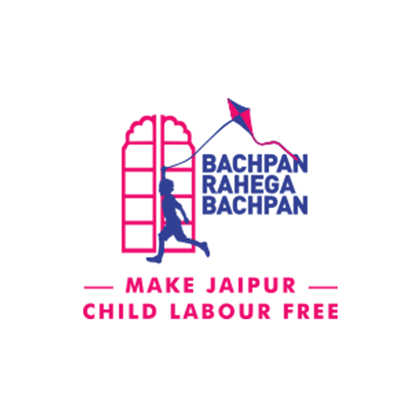Protecting children: Sadhil’s story

When Sadhil came to the Taabar shelter, his body was scarred and his face was swollen. He desperately needed food and medicines.
Ten-year-old Sadhil originally came from Bihar, one of India’s poorest states. 42% of Bihar’s population exist below the poverty line and it has among the highest illiteracy rates in the country.
Sadhil’s mother died when he was in year 5 at school, and his stepfather sent Sadhil to live with his elder sister and her husband in a nearby village. They struggled to afford enough food.
One day, a local man told Sadhil’s sister and brother-in-law that there could be an opportunity for Sadhil to get work in the city. After a lot of discussions, he eventually persuaded them to let Sadhil go with him to Jaipur for a job in a workshop, making bangles.
Once in Jaipur, the man’s behaviour changed. He drank heavily every day and hit Sadhil with whatever came to hand - including an iron rod.
Sadhil was beaten for asking for food, and when he wanted to contact his sister the man heated one of the rods and burnt it into his neck.
Sadhil was not safe at night either. He was sent to sleep alongside older boys who sexually abused him.
Sadhil survived these terrible conditions for two years, cut off from his family and given no wages. Finally, he was rescued, thanks to the work of NGO Taabar and the Child Labour Free Jaipur Initiative (CLFJ), supported by the British Asian Trust.
Sadhil’s employer has now been arrested and Sadhil himself is now well and living happily in the Taabar shelter home. He attends art-based therapy sessions and is back at school and showing remarkable ability. He wants to be an engineer.
CLFJ has been working intensively for policy changes to protect vulnerable children. They have succeeded in making it common practice to formally record statements made by child labourers –leading to far better evidence in legal cases against traffickers.
Our research has found that there are an estimated 50,000 children trapped in hazardous workshops in Jaipur, who produce goods including bangles, embroidery, sarees and semi-precious gems. Many of these children are forced to work for up to 15 hours a day in difficult conditions, leading to long-term damage to their physical and mental health. Many of them have been found to have been trafficked from Bihar.
The British Asian Trust runs its Anti-trafficking Programme to protect victims of human trafficking from forced labour and sexual exploitation by working with businesses to lower the demand for child labour and encourage them to choose non-exploitative labour. We do so in partnership with local organisations such as Childline India and Taabar and with funding from the John Lewis Foundation.
Names have been changed to protect individuals' identities
Find out more about the Child Labour Free Jaipur initiative here
